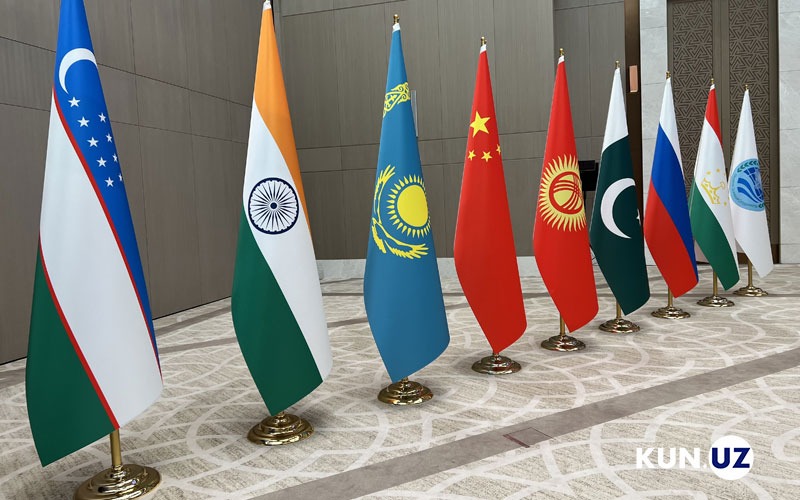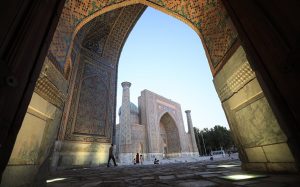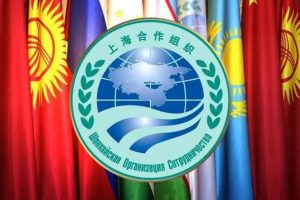
Why the upcoming Samarkand SCO summit is important and what to expect from the outcome
On September 15-16, the Shanghai Cooperation Organization’s (SCO) summit will be held in the historic Uzbek city of Samarkand. At the upcoming event, the leaders of the SCO countries will come together for the first time in three years in a face-to-face format, one that will be a unique and effective opportunity to discuss the bilateral, regional and global issues that have accumulated since the start of the COVID pandemic.
In the context of serious shifts both in international politics and economics, the value of
the summit in Samarkand has grown exponentially. Various key decisions and
agreements are likely to be made in Samarkand, most of which will determine the future of the organization’s development.
A simple state needs to be understood by the global community – the SCO is not a bloc. It is an organization that promotes the concepts of multifaceted cooperation and does not pursue any geopolitical goals or make certain agendas against any nation. These principles are clearly spelt out in its charter. The history of the organization proves that each member, under the banner of the SCO, must observe these strict rules.
The Samarkand summit will be attended by fifteen heads of state and the heads of ten
international organizations that work in cooperation with the SCO. Given the organization’s
representative status and structure, this summit will serve as further confirmation of Uzbekistan’s growing geopolitical and economic influence, as well as the central role that
its president, Shavkat Mirziyoyev, continues to play as a major politician on the world stage.

For the past year, Uzbekistan has been chairing the SCO, where its activities in its role have reflected Tashkent’s new foreign policy initiatives. Central to these are pragmatism,
dynamism and initiative, all of which have become Uzbekistan’s calling card for diplomacy
in recent years. The country’s independent and multifaceted foreign policy has
made it possible to balance the interests of the middle-sized and small countries
within the SCO’s space.
According to international affairs analysts, this gives Tashkent a decidedly key advantage within the organization, namely the trust of all the SCO countries, which allows it to confidently promote major regional and global initiatives through this platform.
The conceptual approach by Uzbekistan as to which path the SCO
should take in this new era of global politics can be seen in the priorities that the Uzbek government has put forward – trade, industrial and technological cooperation, strengthening transport and economic interconnectedness, innovation, digital transformation and a green economy.
Uzbekistan has invited its fellow SCO members to rethink the value of multilateral
cooperation during an ongoing period of great geopolitical and economic upheaval. As a result, at the Samarkand SCO summit, President Mirziyoyev is expected to present a number of breakthrough initiatives and proposals that are designed to serve as a significant revival of the SCO’s agenda and comprehensive modernization of the organization.
These new initiatives come at a time when interest in the future potential of the SCO is growing. What is undeniable is that the heart of the organization lies in the countries of Central Asia, as the SCO, itself, was first conceived and created to develop a new format of cooperation in this strategic region of nearly 80 million people. The SCO’s constructive contribution to stability, security and the establishment of multilateral cooperation in Central Asia is an indisputable fact.
Today, the organization is entering a critical transformational stage, and this process
is due both to the expansion of its membership and to the changing realities
within and around the organization. At the Samarkand summit, the signing
of a Memorandum of Obligations by Iran is expected, which will open the country towards
a direct path to membership in the SCO. In addition, memorandums on granting dialogue partner status will be signed with Egypt, Qatar and Saudi Arabia. The approval of applications for partner status is also expected with Bahrain and the Maldives.

Central Asia will, however, continue to be the core of the SCO, as it serves as the nexus point of the organization’s expanding space. It is in the interest of the SCO to strengthen the positive and irreversible processes that are in motion throughout Central Asia. More than any other factor, this is key to the overall success of the organization.
As part of the summit, a number of important decisions will be decided upon. Thirty coordinated documents have already been prepared, which are aimed at strengthening
the multifaceted interaction of the SCO to bring its internal cooperation to an entirely new level. At the same time, the organizers have noted that this list will be further expanded.
The Samarkand Declaration, the final document that will be issued at the conclusion of the summit and which will reflect the common agreements by all of the SCO countries, will address how the organization aims to solve both regional and global problems through a process that identifies certain priorities that further the SCO’s development.


